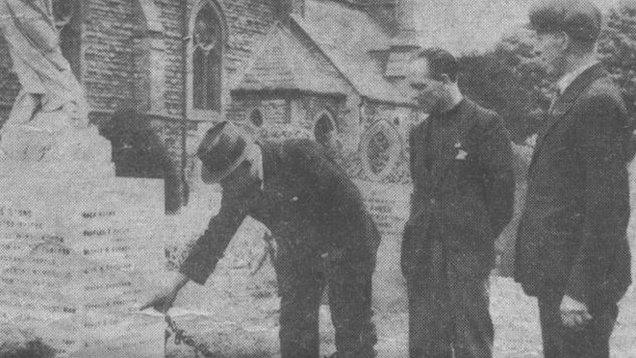World War Two prisoner mended Japanese guards' watches to survive
- Published
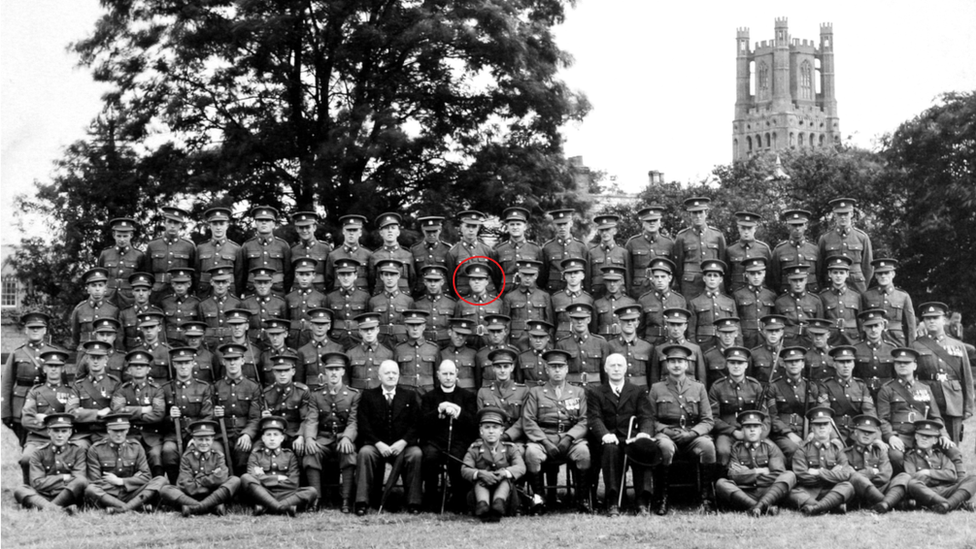
Albert "Tick-Tock" Norman stands in the middle of this photograph of B (Ely) Company, 1st Btn, Cambridgeshire Regiment in July 1938
The story of a soldier who survived World War Two imprisonment by mending his guards' watches has been revealed.
Albert Norman repaired his Japanese captors' watches "just enough to keep them ticking" during three years of brutal treatment.
His family spotted him in a 1938 photograph of the Cambridgeshire Regiment after Ely Museum appealed for help in matching names to faces.
The museum hopes to feature his story as part of its £2.2m redevelopment, external.
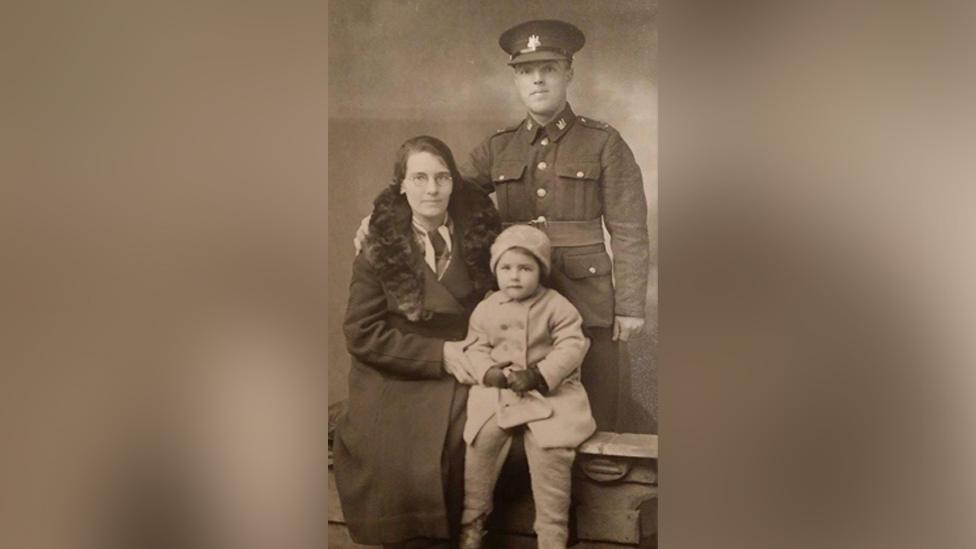
Albert with his wife Margaret and daughter June at the outbreak of World War Two. The Army trained him as a cook
The uncaptioned photograph shows more than 80 men in Ely Company, part of the territorial regiment's first battalion, just before the outbreak of World War Two.
The battalion was captured at Singapore in 1942 and Mr Norman was among the prisoners-of-war who endured more than three years of cruel and sadistic treatment.
The private's granddaughter Vicki Slaughter said he had been a watch-maker in the family business in Ely.
"After capture he'd fix the watches of the guards - just enough to keep them ticking," she said.
"He'd also set the watches to run just slightly slower so that they would be late and get in trouble."
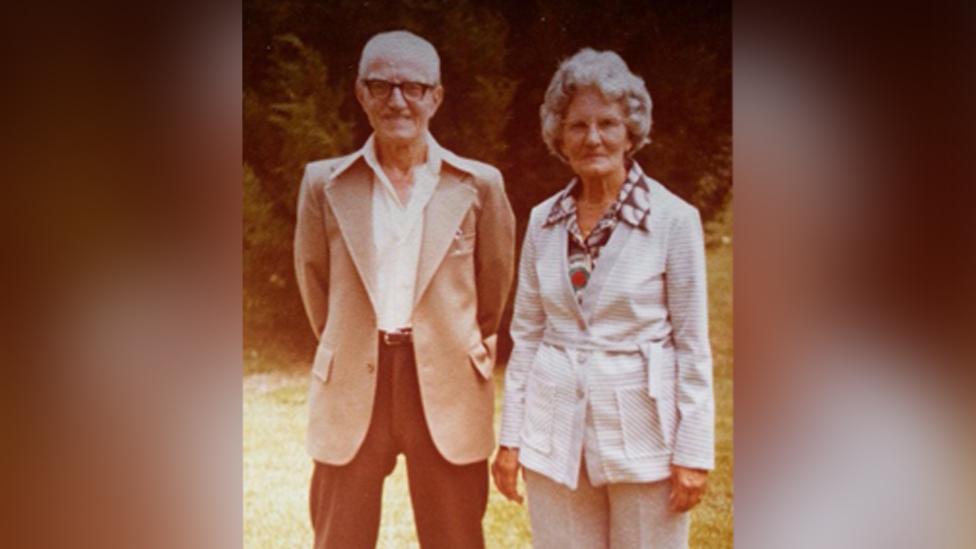
He returned to the UK with 10 tropical diseases, some of which contributed to his death in the 1970s
Mrs Slaughter believes the guards gave him extra food in return for the repairs - he was also the camp cook.
Unlike a quarter of the Allied prisoners-of-war, Mr Norman - who was nicknamed Tick-Tock - survived to return home and lived into his 70s.
Felix Jackson, co-founder of the Cambridgeshire Regiment Research Trust, external, said: "Despite knowing the details of most of those who served in the regiment, there are still many that we have no known photographs of.
"This project is enabling us to add names to several familiar faces."
Emily Allen, Ely Museum's community engagement officer, is appealing for more relatives to come forward.
The museum is closed for redevelopment and will reopen in autumn 2020.
- Published9 November 2019
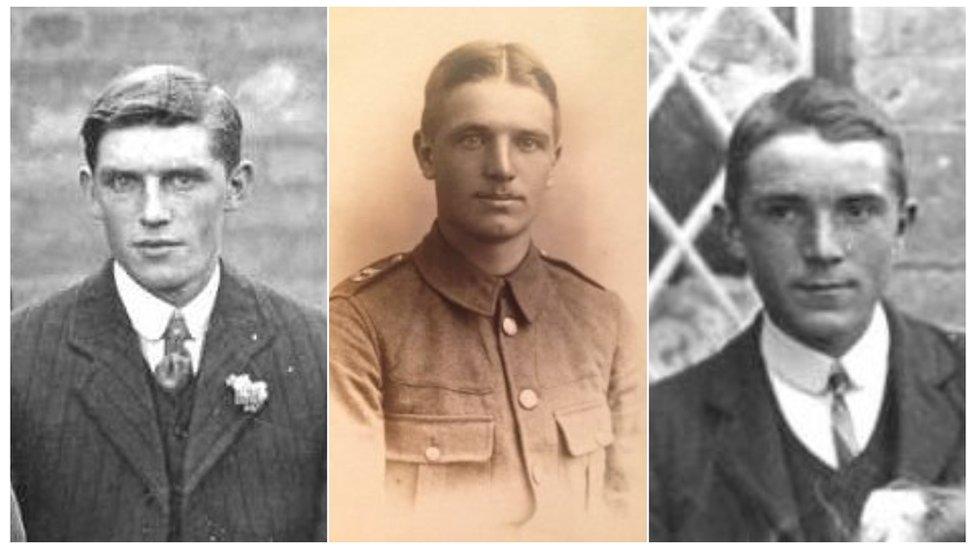
- Published29 August 2018
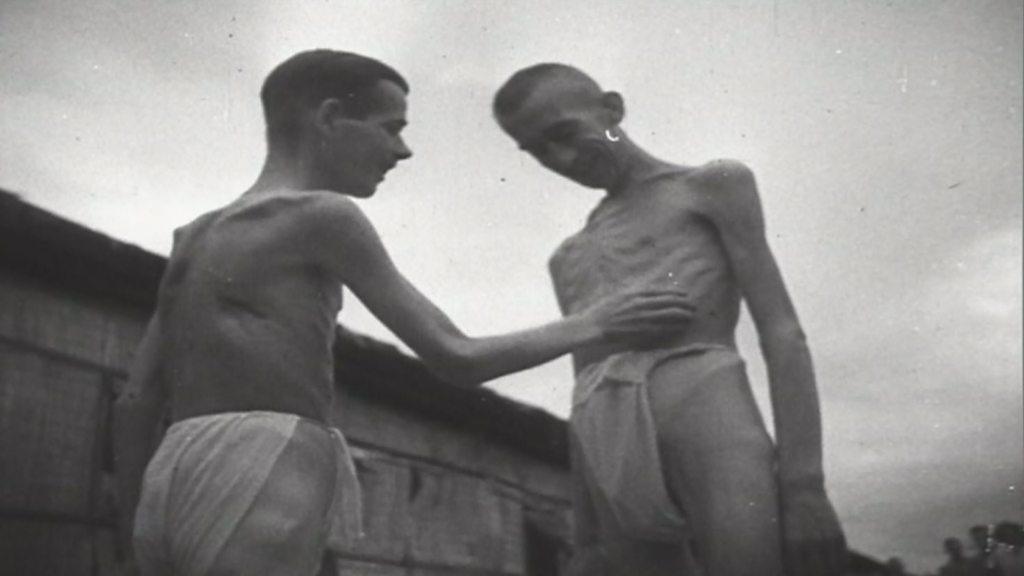
- Published29 May 2017
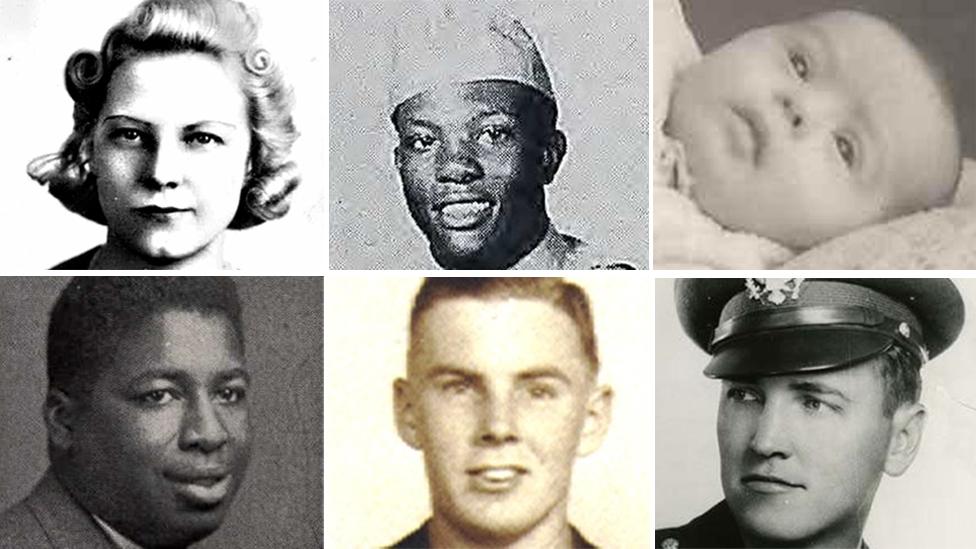
- Published15 August 2015
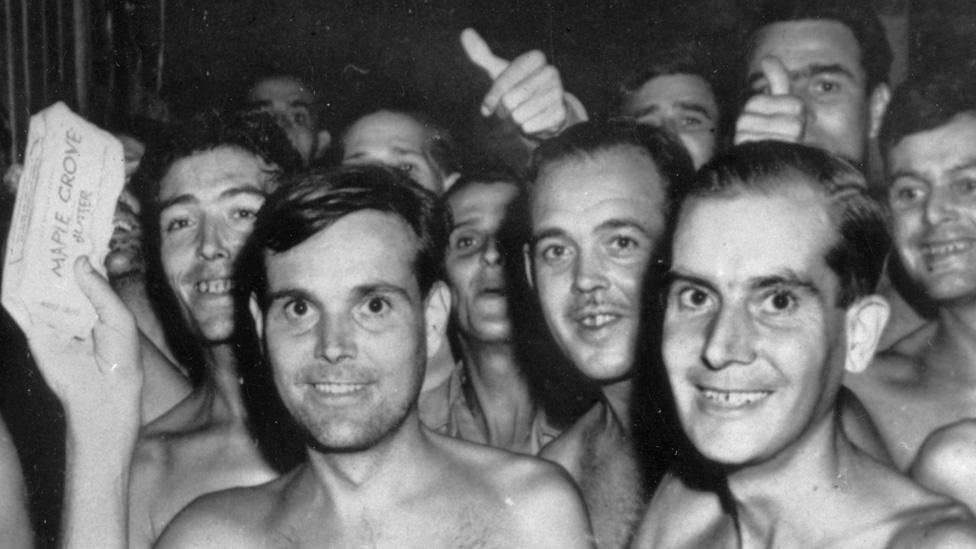
- Published3 January 2015
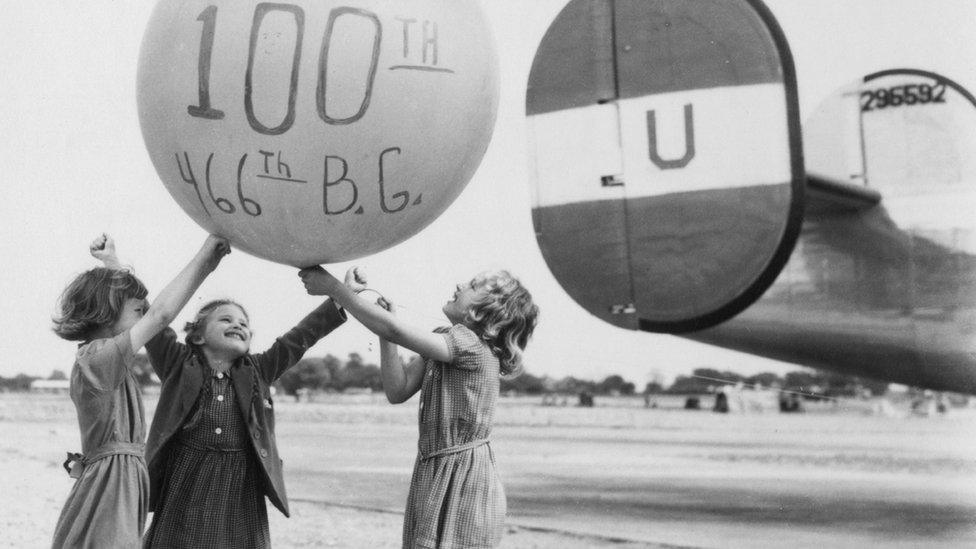
- Published14 November 2014
